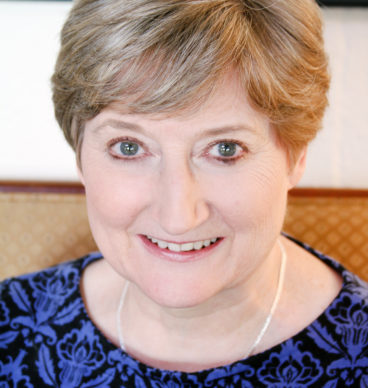Avant Take: This workshop is for you if you work with trauma clients, if you’ve gotten stuck in the therapy relationship, if you often feel not “good enough,” “wise enough,” or “strong enough” for the clients you work with, or if you frequently feel that the client is pushing against your best efforts to connect and help.


Kathy Steele, MN, CS
Kathy Steele, MN, CS has been in private practice in Atlanta, Georgia for over three decades, and is an Adjunct Faculty at Emory University. Kathy is a Fellow and a past President of the International Society for the Study of Trauma and Dissociation (ISSTD), and is the recipient of a number of awards for her clinical and published works, including the 2010 Lifetime Achievement Award from ISSTD. She has authored numerous publications in the field of trauma and dissociation, including three books, and frequently lectures internationally on topics related to trauma, dissociation, attachment, and therapeutic resistance and impasses.
Relational Challenges in Complex Trauma
$235.00
Note: This is a 5-hour recorded workshop. After you sign up, you’ll receive a link to stream the video on Zoom as well as instructions for completing a written post-test (required for CE credit).
One of the most challenging aspects in working with clients with complex trauma is the therapeutic relationship. The therapist and client together enter into an immediate double bind: How can the therapeutic relationship be helpful when relationship has been the very source of our clients’ trauma? For most of the modern history of psychotherapy, the therapeutic relationship has been modeled on the parent-child relationship, with the therapist being a “stronger, wiser” and “good enough” other. Yet for many of our clients the parent-child relationship was painful, if not dangerous and inherently untrustworthy. We will explore a different relational model based on collaboration and mutual understanding and experience rather than one rooted in attachment alone. While secure attachment is essential, it often does not exist early in therapy, and clients may be either extremely avoidant of contact or become overly dependent on the therapist. We will discuss the dynamics of disorganized attachment (the insoluble dilemma of needing to attach to someone who is experienced as dangerous), and how to resolve it in treatment. We will explore what is activated in the therapist when our clients are distressed, and how to work with our own experience in order to preserve a solid therapeutic frame for the ourselves and our clients. To this end we will examine our own tendencies in the face of our clients’ rage, disappointment, demands, and dependency. Sometimes we become overly available outside of sessions to prove we are reliable, only to become exhausted and resentful. Other times we may withdraw, freeze, or shut down. Often, we feel overwhelmed by the magnitude of our clients’ needs. Most importantly, we will find ways to recognize and accept our reactions with compassion, and discover the capacity to repair using compassion, curiosity, and collaboration.
Learning Objectives
- Explain the intrapsychic and relational dynamics of disorganized attachment and how it manifests in the therapeutic relationship.
- Describe a collaborative model of relationship in therapy and contrast it with the parent-child model in working with trauma survivors.
- Discuss dependency in the client and how to work with it in therapy.
- Employ at least four therapeutic approaches to the client who is in conflict with or feels disappointed by the therapist.
- Describe how therapists can acknowledge their own defensiveness in reaction to the client and re-center to a more compassionate, objective, and therapeutic perspective.
- Analyze healthy and useful therapeutic boundaries and frame (for example, how often and long a client is seen; the frequency of phone, email, or text contact; collection of fees; need for regular crisis intervention) in clients with complex trauma
Continuing Education Credit – 5 Hours
- APA – Avant Training is approved by the American Psychological Association to sponsor continuing education for psychologists. Avant Training maintains responsibility for this program and its content.
- GSCSW – This workshop is approved for Core CE hours through the Georgia Society for Clinical Social Work. Approval # 012922
- LPC, LMFT- Related hours
49 in stock
Cancellation Policy
Please note that there are no refunds offered for recorded workshops. Send us an email at admin@avant-training.com if you have any questions before you register.
